#maureen corrigan
Photo
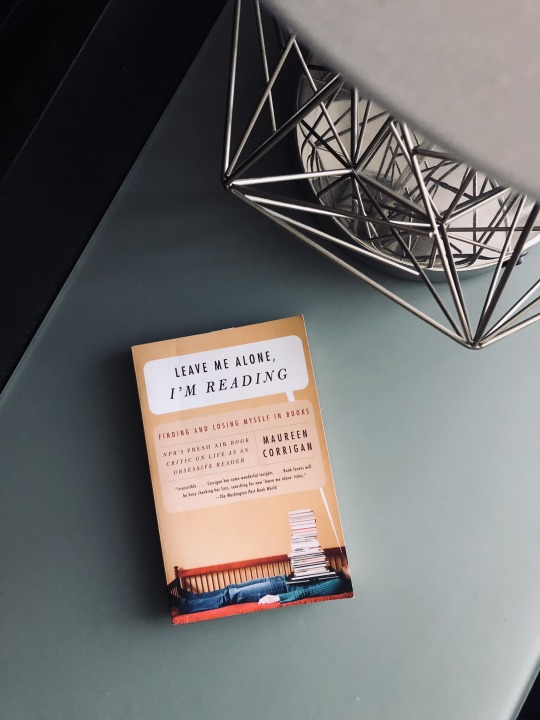
Leave Me Alone, I’m Reading
Maureen Corrigan
95 notes
·
View notes
Text

this book was slow in moments but it did remind me of my high school desire to get a great gatsby tattoo (it was going to be part of the last lines of the novel, either ending with “And one fine morning—“ or only that part, for the record)
#tbrbusterchallenge2022#bookbanditchallenge#so we read on#maureen corrigan#im not getting a tattoo anytime soon and gatsby wouldnt be my first tattoo BUT and one fine morning long dash slaps as a tattoo idea#mary emma’s posts
21 notes
·
View notes
Text
Maureen Corrigan reviews The Kamogawa Food Detectives by Hisashi Kashiwai translated by Jesse Kirkwood
#japan#detective novel#food#novel in translation#father and daughter#japanese food#memories of food#maureen corrigan#npr#book review#freah air
1 note
·
View note
Text

"The subtitle of Monsters is A Fan's Dilemma: the dilemma being still loving, say, the music of Wagner or Michael Jackson; still being caught up in movies like Chinatown or maybe even Manhattan. In short, Dederer wants to dive deep into the murk of being "unwilling to give up the work [of art you love], and [yet, also being] unwilling to look away from the stain [of the monster who created it]."
LISTEN 7-Minute Listen READ MORE https://www.npr.org/2023/05/10/1174293359/monsters-a-fans-dilemma-review-claire-dederer
0 notes
Text

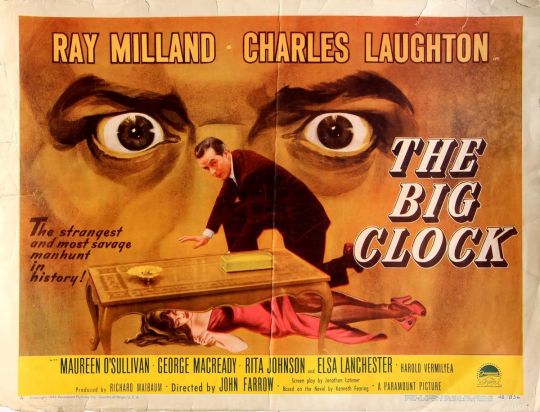

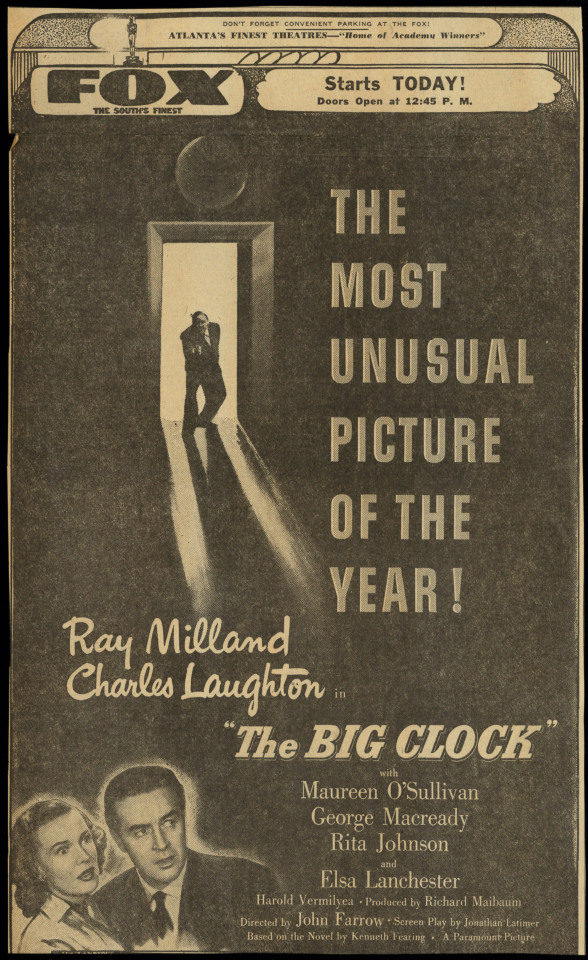


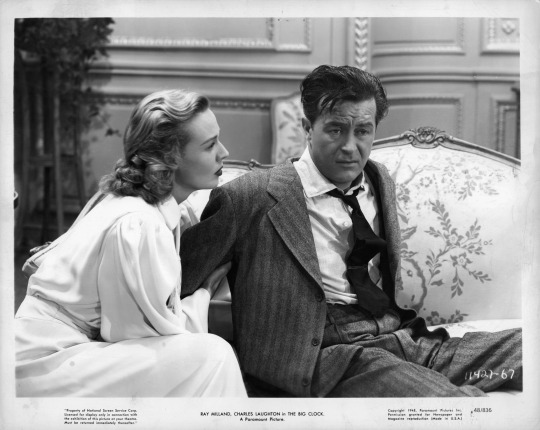
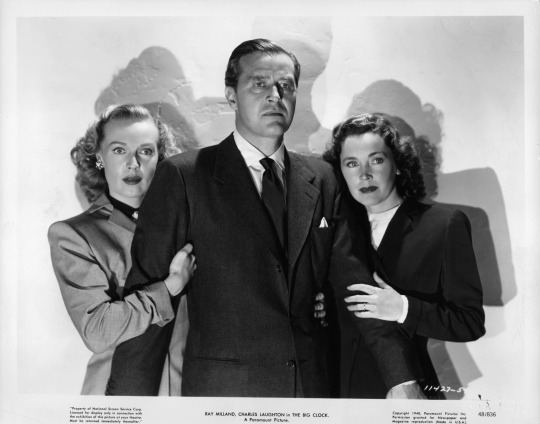
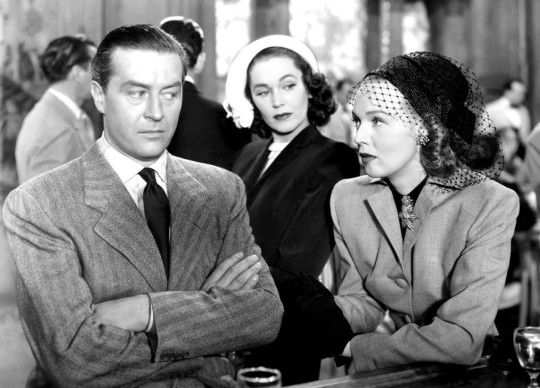
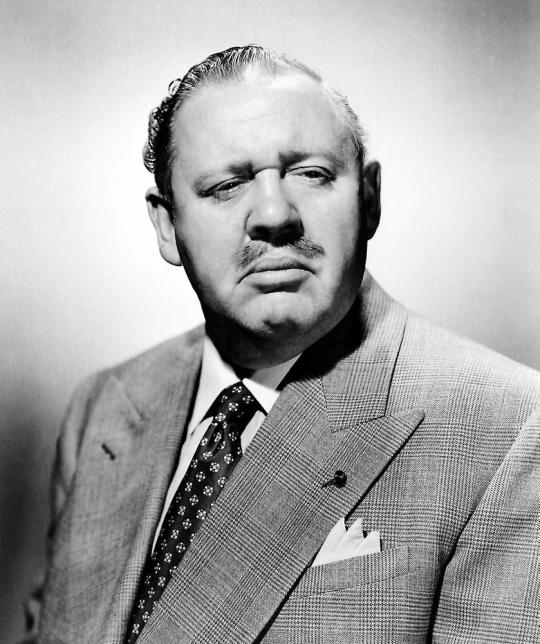
The Big Clock (1948) John Farrow
January 13th 2024
#the big clock#1948#john farrow#ray milland#charles laughton#maureen o'sullivan#george macready#rita johnson#elsa lanchester#dan tobin#harry morgan#lloyd corrigan#theresa harris#ruth roman
9 notes
·
View notes
Photo
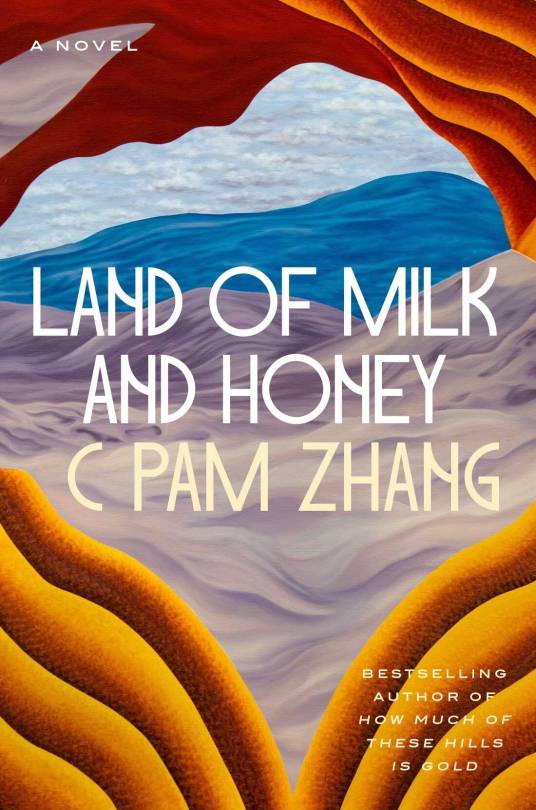
(via 'Land of Milk and Honey' review: C Pam Zhang serves up a dystopian suspense : NPR)
review by maureen corrigan on fresh air
0 notes
Photo
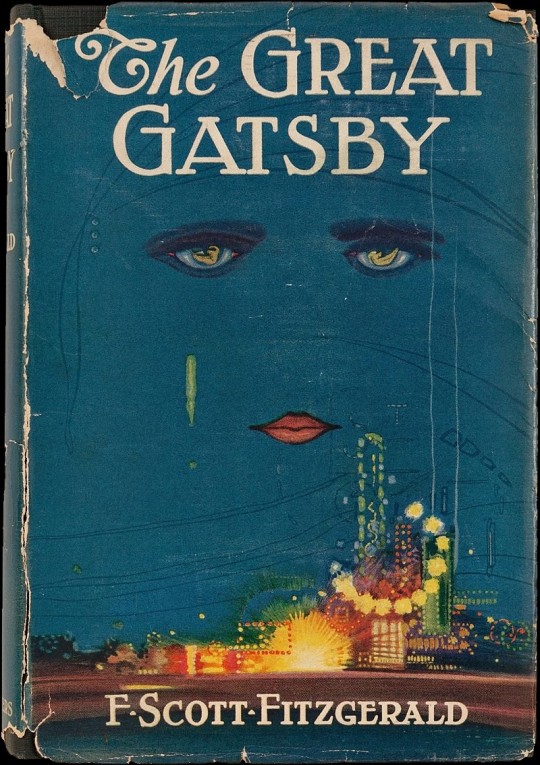
On April 10th, 1925, Charles Scribner’s Sons published The Great Gatsby, F. Scott Fitzgerald’s third novel, which Fitz had begun drafting almost three years before.
“The whole idea of Gatsby,” Fitzgerald once wrote, “is the unfairness of a poor young man not being able to marry a girl with money. This theme comes up again and again because I lived it.” (That would be in regards to his failed love affair with Ginevra King, who inspired Daisy Buchanan.)
Famously, the book was almost called something else—a number of something elses, in fact. “Before reluctantly deciding on The Great Gatsby, Fitzgerald hemmed and hawed over more than half a dozen names,” writes Dustin Illingworth. “Gatsby; Among Ash-Heaps and Millionaires; Trimalchio; Trimalchio in West Egg; On the Road to West Egg; Under the Red, White, and Blue; Gold-Hatted Gatsby; and The High-Bouncing Lover. As late as one month before publication, he was still trying to change the title. His final opinion of the name of his masterpiece was not exactly a ringing endorsement: ‘The title is only fair, rather bad than good,’ he said.”
Though The Great Gatsby was received warmly by Fitzgerald’s peers and enjoyed (mostly) positive reviews from critics, it did not sell well, particularly as compared to Fitzgerald’s previous two novels, This Side of Paradise (1920) and The Beautiful and the Damned (1922). (Maybe it was the title.) By the time Fitzgerald died in 1940, he considered the book—and his entire career—a failure.
But books can have long lives. During WWII, The Great Gatsby was selected by the Council on Books in Wartime to be one of the titles sent to American soldiers stationed overseas—and its popularity soon soared.
Now, The Great Gatsby is, of course, one of the perennial candidates for what we think of as the Great American Novel. “Gatsby’s magic emanates not only from its powerhouse poetic style—in which ordinary American language becomes unearthly—but from the authority with which it nails who we want to be as Americans,” Maureen Corrigan writes in So We Read On: How The Great Gatsby Came to Be and Why It Endures. “Not who we are; who we want to be. It’s that wanting that runs through every page of Gatsby, making it our Greatest American Novel. But it’s also our easiest Great American Novel to underrate: too short; too tempting to misread as just a love story gone wrong; too mired in the Roaring Twenties and all that jazz.”
Daily inspiration. Discover more photos at http://justforbooks.tumblr.com
49 notes
·
View notes
Link
New story on NPR: The secret to Barbie's enduring appeal? She can fend for herself https://ift.tt/7AeOvTg
2 notes
·
View notes
Text

رأيت هذا العم منغمساً في القراءة أمام متجره الصغير في وسط البلد الذي يعرض فيه أحذية مستعملة. غبطته على استغراقه، وتساءلت عن المرة الأخيرة التي استغرقت فيها بشيء دون تشتت ومقاطعات (خصوصاً من الهاتف). تذكرت أيضاً اقتباساً للصحفيّة الأمريكية مورين كوريغان من كتابها "دعني وشأني، فأنا أقرأ" تقول فيه: " بشكل واعٍ أو بغير وعي، أعتقد أن ما نفعله نحن القرّاء في كل مرة نفتح فيها كتاباً هو الانطلاق في رحلة البحث عن الأصالة. نريد أن نقترب من جوهر الأشياء، وحتى في بعض الكتب غير الاستثنائية، قد نصادف بضعة جُمل جيّدة قادرة على بلورة مشاعر غامضة، أو أحاسيس جسدية عابرة، وفي بعض الأحيان تجليات عميقة."

I saw this uncle reading in front of his little second-hand shop in Downtown Amman. He was immersed deeply in his book. I envied him and wondered when was the last time I dived into something without being distracted (mainly by my smartphone). In her book "Leave Me Alone, I’m Reading", Maureen Corrigan says: "I think, consciously or not, what we readers do each time we open up a book is to set off on a search for authenticity. We want to get closer to the heart of things, and sometimes even a few good sentences contained in an otherwise unexceptional book can crystallize vague feelings, fleeting physical sensations, or, sometimes, profound epiphanies.”
#currently reading#reading#humans of tumblr#caught reading#bookish#booklover#bookworm#bookstagram#readersofinstagram#old amman#downtown#amman#jordan#الأردن#عمان#everydayjordan#اقتباس#quote#اقتباسات#quoteoftheday
18 notes
·
View notes
Text
A reader wrote to me regarding an ethnocentric NPR review of a Korean book and that reminded me that I'm still made about it that piss-poor article. 😂
2 notes
·
View notes
Text
Nick tells us that for several weeks [after Gatsby and Daisy's reunion] he didn't see Gatsby or talk to him on the telephone, that there was "a short halt" in their relationship. How bold of Fitzgerald to pause at dead center of Gatsby to allow the principal players their privacy, away from Nick and, of course, us readers.
[...]
Anything "real" that took place between Gatsby and Daisy during those crucial weeks could never measure up to what Gatsby had envisioned in his imagination all those years. Above all, this is a novel about the titanic power of dreams; it's not a novel about the spell of sex or the naughty giddiness of an illicit affair. I don't want to know how Daisy's body felt to Gatsby or how she smelled when he buried his face in her hair. I know how Gatsby felt: he felt let down. […] Moreover, passing over Gatsby and Daisy's relationship in silence further intensifies the relationship that is dramatized in the novel: Nick's enduring love for the dead-and-gone Gatsby.
—Maureen Corrigan, So We Read On: How The Great Gatsby Came to Be and Why It Endures
16 notes
·
View notes
Text
List 1: Female Extreme-Adventure Tales
I just finished reading Maureen Corrigan’s Leave Me Alone, I’m Reading. In it she features a number of recommended reading lists. Below is her “Female Extreme-Adventure Tales: Traditional and Feminist” list.
No list from any single individual can be comprehensive, but together we can make it so. Please reply with your additions to this list, comments about her list, etc.
Female Extreme-Adventure Tales: Traditional and Feminist
Pride and Prejudice, Jane Austen
Persuasion, Jane Austen
The Tenant of Wildfell Hall, Anne Bronte
Jane Eyre, Charlotte Bronte
Villette, Charlotte Bronte
Quartet in Autumn, Barbara Pym
One True Thing, Anna Quindlen
Black and Blue, Anna Quindlen
Scoundrel Time, Lillian Hellman
Collected Poems, Stevie Smith
Beloved, Toni Morrison
120 notes
·
View notes
Text
“It’s not that I don’t like people. It’s just that when I’m in the company of others – even my nearest and dearest – there always comes a moment when I’d rather be reading a book.”
- Maureen Corrigan
10 notes
·
View notes
Text

You can't 'Trust' this novel. And that's a very good thing
May 12, 202211:27 AM ET
Heard on Fresh Air
Maureen Corrigan
Trust by Hernan Diaz is one of those novels that's always pulling a fast one on a reader. Take the opening section: You settle in, become absorbed in the story and, then, 100 pages or so later — Boom! — the novel lurches into another narrative that upends the truth of everything that came before.
When a work of fiction reminds me that it is a work of fiction simply to show me how gullible I am, well, thanks, I knew that already. But sometimes these metadramatic maneuvers serve a novel's larger themes. Susan Choi's 2019 novel, Trust Exercise, about the misleading powers of art and memory, is one recent instance; now, Diaz's Trust is another. That word "trust" in both their titles is a tip-off that that's exactly what we readers shouldn't do upon entering these slippery fictional worlds.
Trust is all about money, particularly, the flimflam force of money in the stock market, and its potential, as a character says, "to bend and align reality" to its own purposes. The opening section is imagined as a novel-within-a novel, entitled Bonds, a 1937 best-seller about the rise of a Wall Street tycoon named Benjamin Rask. Think of figures like J.P. Morgan and Charles Schwab, men whose DNA was made of strands of ticker tape. We learn that Rask is that rarest of creatures, a wealthy man without appetites. Our narrator tells us Rask is fascinated by only one thing:
If asked, Benjamin would probably have found it hard to explain what drew him to the world of finance. It was the complexity of it, yes, but also the fact that he viewed capital as an antiseptically living thing. ... There was no need for him to touch a single banknote or engage with the things and people his transactions affected. All he had to do was think, speak, and, perhaps, write. And the living creature would be set in motion ...
For the sake of posterity, Rask does eventually marry — an equally self-contained woman named Helen. Throughout the Roaring '20s, Rask accrues wealth and Helen finds her place as a patron of the arts. Then, comes the Crash of 1929. Because Rask profits from other speculators' losses, rumors circulate that he rigged the Crash and he and Helen are ostracized. The final chapters of this saga detail Helen's ordeal as a patient at a psychiatric institute in Switzerland; her mania and her eczema, described as a "merciless red flat monster gnawing on her skin," are reminiscent of the real life torments of Zelda Fitzgerald.
The opening section of Trust, as I've said, is so sharply realized, it's disorienting to begin the novel's next section, composed of notes on a story that sounds like the one we've just read. But, then, Diaz lures us readers into once again suspending our disbelief when we reach the captivating third section of his novel, which mostly takes place during the Great Depression. There, a young woman from Brooklyn named Ida Partenza becomes the secretary — and ghostwriter — for a financial mogul named Andrew Bevel. Bevel's life is the source for that best-selling novel, Bonds, and he's so infuriated by that novel, he's had all copies removed from the New York public library system. Bevel hires Ida to help him write a memoir that will set the record straight. Sure. The fourth and final section of Trust is wired with booby traps, blowing the whole artifice up before our wide-open eyes.Trust is an ingeniously constructed historical novel with a postmodern point. Throughout, Diaz makes a connection between the realms of fiction and finance. As Ida's father, an Italian anarchist, says:
Money is a fantastic commodity. You can't eat or wear money, but it represents all the food and clothes in the world. This is why it's a fiction. … Stocks, shares, bonds. Do you think any of these things those bandits across the river buy and sell represent any real, concrete value? No. … That's what all these criminals trade in: fictions.
Literary fiction, too, is a fantastic commodity in which our best writers become criminals of the imagination, stealing our attention and our very desires. Diaz, whose last novel, In the Distance, reworked the myths of masculine individualism in the American West, makes an artistic fortune in Trust. And we readers make out like bandits, too.
2 notes
·
View notes
Text
“It’s not that I don’t like people. It’s just that when I’m in the company of others – even my nearest and dearest – there always comes a moment when I’d rather be reading a book”
- Maureen Corrigan
#light acadamia aesthetic#light academia#light academism#light acedemia#light acamedia#dark academia#dark acadamia aesthetic#dark academism#dark acadamia quotes#dark acamedia#books#book#book quotes#bookaholic#aesthetic#aesthetic quotes#inspirational quotes#motivational quotes
5 notes
·
View notes
Link
As the year comes to a close, we're sitting down with book critics to discuss some of the best books released in 2023. NPR’s Fresh Air book critic Maureen Corrigan and New York Times books editor Gilbert Cruz share their favorite fiction and nonfiction picks with Jeffrey Brown. ”Absolution” by Alice McDermott The main character is a newlywed, a young wife who is pulled into this group of women who are doing charitable works in
0 notes